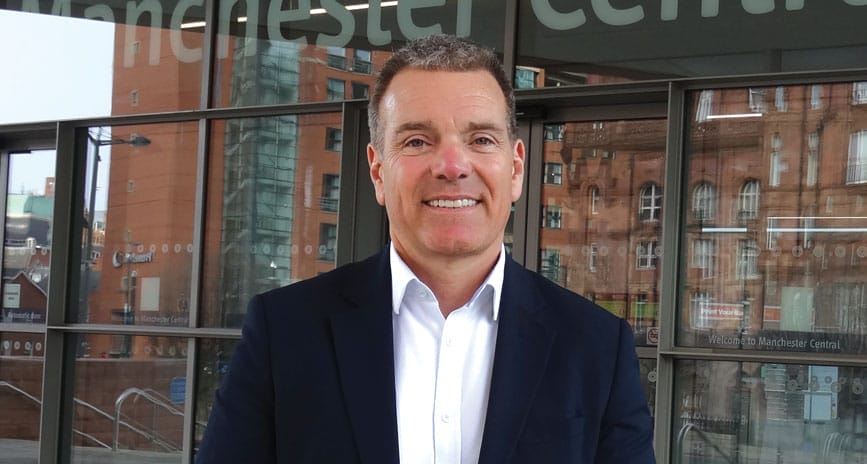by Phil Jones MBE, Managing Director, Brother UK
UK office workers are spending too much time in meetings to do their job properly and it’s having a real impact on workplace productivity. There’s a breadth of scientific research and academic theory that can help businesses nurture a culture where meetings can be productive. That means holding meetings that lead to meaningful results in an appropriate time, where everyone feels valued.
So, here’s the science bit. What are the three theories you need to know?
Theory 1 : Tuckman’s Stages of Group Development
Effective meeting facilitation is vital. But it’s not something you can learn and implement overnight. It takes practice and a culture that supports and encourages proper facilitation. To help, Bruce Tuckman’s four stages of group development is a well-accepted theory from the 1960s that provides a good framework to work from. It asks meeting facilitators to consider the cohesion and familiarity of any group for them to direct accordingly. And while it is a challenge at first to use all of these steps in a 30-minute meeting, it’s achievable with practice. Here they are:
- Forming : This is the stage where the group meets. Attendees are typically polite but guarded. The role for a facilitator is to help the team understand their roles and responsibilities, while establishing a sense of purpose and common goal for the meeting, to help take them to the next stage.
- Storming : This is where roles and relationships are developed. Leadership and structural issues often dominate this stage, which can be a powder keg for conflict. Facilitators need to be direct, alert, keep teams on track and resolve any problematic conflicts that emerge within the group.
- Norming : After power struggles comes cohesion, familiarity and trust. In a group project exercise, for example, it’s where plans, timelines and responsibilities are agreed. Facilitators should flex from having a directive role to more of a supporting presence, as the group takes on more autonomy. But facilitators can’t let their guard down to new conflict.
- Performing : Here, the team achieves strong, productive collaboration. They’re comfortable in their goals, roles and responsibilities while motivated to get things done competently. Facilitators need to empower the team by celebrating contributions and achievements.
Theory 2 : The Mere Urgency Effect
There’s a big difference between tasks that are urgent and those that are important. We all know that the jobs on our to-do list that are the most time-sensitive are not always the same jobs that will deliver the highest rewards or move us most effectively towards our goals. Unfortunately, studies of human behaviour show that we are not very good at prioritising tasks that are truly important over those that are merely urgent.
Let’s say, for example, you have set a day aside to complete a key task that will take a lot of focused time. When the day arrives, it can be difficult to avoid spending time responding to requests because of the apparent urgency of responding. Having a diary full of meetings only exacerbates this effect, as there is a strong temptation to prioritise your list of tasks based on which meeting you will be participating in soonest, rather than which is genuinely more important or higher-reward.
Setting boundaries for meetings, time management techniques and delegation are each important to manage the balance of meeting and preparing for meetings against the focus time needed to fulfil priorities.
Theory 3 : Parkinson’s Law
“Work expands to fill the time available for its completion.” This all-too-familiar ‘law’ was, actually first identified and described by a historian, Cyril Northcote Parkinson, in 1957. It will be familiar to anybody that has found themselves working on a task they had a month to complete the night before the deadline. When they’re poorly managed, meetings can be a major culprit when it comes to filling up the available working time.
In our survey, we found that 81% of respondents said most of the meetings they attend could be shorter. And more than half (59%) said that people waffling and unproductive meeting conversation, was the chief culprit for time wasting.
It’s important to maintain the mindset that meetings happen in order to accomplish tasks, not to fill up allotted slots in the diary.
The insight here is get to the point and finish the meeting when you’ve done what you set out to accomplish.
Our three key takeaways
These theories provide us with three clear priorities and while they sound simple, our research shows that ignoring them is negatively impacting employees and creating significant time pressure.
- Proper facilitation is often lacking and should be applied to every meeting
- Managers need to be more stringent on who is invited to meetings and introduce better boundary setting to give staff more time back
- Get to the point of a meeting quickly and finish when the objectives have been achieved – stop expanding the conversation to fill the allotted time.
Ten mandates for meaningful meetings
Looking at this in more detail, 2,000 UK office workers were polled recently to get a clearer insight behind the science. Shared experiences of UK office meeting culture were gathered to bring you ten mandates for running meetings that lead to meaningful outcomes.
- Stop and think: can I cover this in an email?
More than half (55%) of UK office workers say meetings are stopping them getting work done effectively, and one way to prevent meeting overload is to stop and think about whether any given get-together or catch-up is necessary. Got something to brief your teams on? An ad hoc update on a project to a client? Perhaps it could be covered in an email, or a quick one-to-one with the person that really matters. It could save your teams a lot of time.
- Think in-person first
Hybrid, flexible working may make scheduling in-person meetings more challenging. And organisers should factor in where people will be travelling from and whether the need for the meeting warrants attendees making long journeys. Research uncovered a big gap in the perceived outcomes of face-to-face vs virtual meetings. When asked what type of meeting they found the most productive, half (50%) said face-to-face in the office, compared to 24% that said virtual meetings. In-person meetings are typically preferred for complex problem solving and relationship building.
- Hold meetings between 9am and midday
We asked office workers what times of day they feel most productive in a meeting. Four in five (82%) agreed between 9am and 12pm was best. Only 10% responded with times after 3pm. So, time can have significant influence on meeting productivity.
- Only invite the people you really need
More than one in three (38%) will accept a meeting invite, even when they’re not relevant, because somebody more senior invited them. So, one way to help free-up colleagues’ time is to consider whose input is essential, and who else might just want to see an actions report over attending. Plus, think of Amazon founder Jeff Bezos’ two pizza rule: no meeting should be so big that two pizzas can’t feed the whole group.
- Could your meeting be shorter?
Four in five (81%) office workers also say that they could achieve the same outcomes even if their meetings were shorter. This idea is backed up by academic theory too. Parkinson’s Law outlines how work expands to meet the time allocated to it, and the same could be said for meetings. With that in mind, it’s vital to avoid scheduling overly long meetings and to ensure they finish on time. Consider allocating a specific amount of time to each agenda item. Then, when time’s up, move on.
- Pick a facilitator
More than half of our survey group (55%) said they go to too many poorly facilitated meetings. The facilitator plays a crucial role in an effective meeting. They make sure a meeting has objectives and enables the session to deliver on them. It’s also their job to introduce attendees if necessary, to give everyone chance to speak and to keep discussion on-topic. The logical facilitator for any meeting is the person who’s organising the meeting, so if you’re sending meeting invites to your co-workers, you should be prepared to act as facilitator and keep the meeting you scheduled on track so it’s productive for all attendees.
- Share a meeting agenda ahead of time
More than three quarters of respondents (78%) said they need an agenda ahead of any given meeting. It’s important to let every attendee know what contribution they’re going to make in the meeting, and what they need to prepare for as far in advance of the meeting as possible, with a reminder closer to the day. This will increase the quality of the discussion, and reduce the risk of needing to run a follow-up session to cover off aspects of the meeting that weren’t completed because people weren’t properly prepared.
- Take and share meeting notes
Nearly three quarters (73%) of our survey responders say they want to see action notes circulated following sessions. Efficient meetings result in a clear, shared understanding of what’s needed next from everyone involved. The key to this is to ensure that all actionable items, takeaways, and decisions are recorded and shared with attendees after the meeting. The key to good note taking is to allow people who didn’t attend the meeting to quickly understand the outcomes quickly. When there is a culture of effective, reliable reporting of meetings in a company, it’s easier for non-essential people to make the decision not to attend, freeing up their time for productive work.
- Give everyone the opportunity to participate
Research by the Kellogg School of Management shows that in a typical meeting of six people, two do more than 60% of the talking. In a group of eight, three people do 70%. Assuming that rule four is being followed, and everyone participating in the meeting has a good reason to be there, this is probably a sub-optimal balance. Useful insights risk being missed if attendees that are not naturally confident in dominating the floor are not given a chance to participate. Facilitators can help people come to the meeting prepared, helping everyone to feel confident in contributing valuable insights. They should also help to bring less-assertive attendees into discussions.
- Discourage devices
It’s harder to focus when you’re multitasking – scrolling social media, checking emails, or replying to messages. Regularly checking our phones has become normalised and this habit is increasingly creeping into meetings, sometimes to the detriment of focused discussions. Almost half (44%) of our survey said they suspect colleagues of doing other work instead of paying attention. When leading a meeting, whether in person or virtual, it’s fair to ask attendees at the outset to resist the temptation to check their messages and give their full attention to the topic in hand.
Be the meaningful meeting organiser
With the average office worker subjected to 172 meaningless meetings every year, there’s ample room for the UK to collectively up its meeting game. If you’re guilty of organising needless meetings, following these mandates could help you to deliver better outcomes from meetings, without wasting your colleagues’ time. Collectively, we could hand back hundreds of thousands of hours to companies each year for more productive means.
For more business insights and thought leadership articles visit Brother UK’s Spark Blog
You can follow Phil Jones MBE on LinkedIn and X : @philjones40







